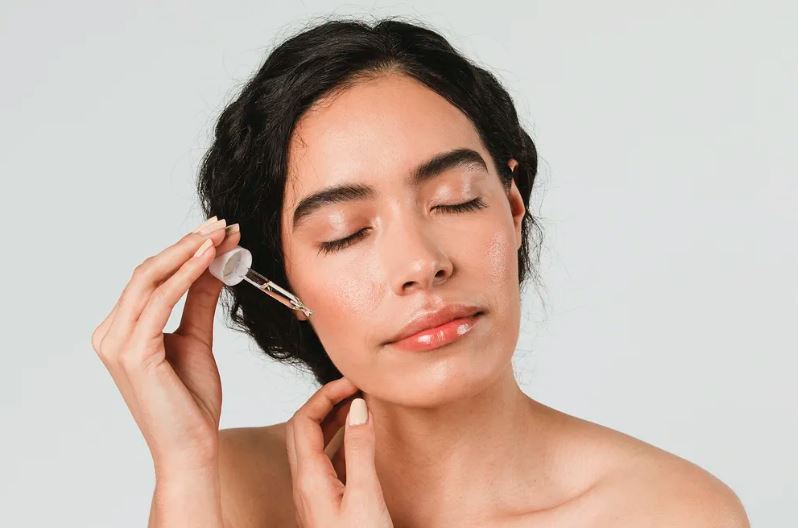
You may have heard about the benefits of hydrolyzed hyaluronic acid (HA) for the skin, but you may not be sure what it is or how it works. HA is a molecule that is naturally produced by the body and is known for its ability to hold up to 1,000 times its weight in water. This makes it an ideal ingredient for skin care products and anti-aging skin treatment procedures as it can help to hydrate and plump the skin, giving it a more youthful appearance. In this article, we will explore the different ways in which hydrolyzed HA can benefit the skin, as well as some of the best procedures and products on the market that contain this beneficial ingredient.
What Is Hydrolyzed Hyaluronic Acid?
Hydrolyzed Hyaluronic Acid is a type of HA that has been hydrolyzed or broken down, into individual molecules of glucose and uronic acid.
This makes the HA more soluble, so it can be better absorbed by the body. It also makes it less viscous, or thick, so it can be used in topical applications like cosmetics and skincare products.
Hydrolyzed Hyaluronic Acid is thought to be more effective than regular HA at promoting collagen production, wound healing, and skin hydration.
What Are Benefits Of Hydrolyzed Hyaluronic Acid For The Skin?
Hydrolyzed hyaluronic acid is a form of hyaluronic acid that has been broken down into smaller molecules. This makes it better able to penetrate the skin and deliver its benefits. Some of the benefits of hydrolyzed hyaluronic acid for the skin include:
- Reduced wrinkles and improved skin elasticity
- Improved hydration and decreased transepidermal water loss (TEWL)
- Increased collagen production
- Reduced inflammation
- Improved wound healing
How Is Hyaluronic Acid Used In Anti-Aging Skincare?
Hyaluronic acid is used in cosmetology as a moisturizer and filler.
As a moisturizer, hyaluronic acid can attract and bind up to 1,000 times its weight in water, making it an excellent natural skin hydrator.
As a filler, it can help plump up the skin to diminish the appearance of wrinkles and fine lines.
Hyaluronic acid is also beneficial for hair care. It can be used as a conditioner to add moisture and shine, and it may help protect against sun damage.
How Do Hyaluronic Acids Differ?
Hyaluronic acids are a family of naturally occurring carbohydrates that can be found throughout the body, including in the skin, joints, and eyes. They are important for tissue hydration, lubrication, and cushioning.
There are several different types of hyaluronic acid, but they all share some common properties. They are all very large molecules (molecular weight from 500kDa to 1,000kDa) that can hold a lot of water (up to 1,000 times their own weight). This makes them excellent moisturizers and helps them to bind easily to collagen and elastin fibers. They also have a low antigenicity so they are unlikely to cause an allergic reaction.
The three most common types of hyaluronic acid are:
- Sodium hyaluronate
- Potassium hyaluronate
- Hyaluronic acid sodium salt
How To Pick A Good Hydrolyzed Hyaluronic Acid Product?
When looking for a hydrolyzed hyaluronic acid product, it is important to find one that contains a high percentage of HA. Most products on the market contain between 1-5% HA.
It is also important to find a product that contains a high molecular weight HA, as this will be more effective at penetrating the skin.
Finally, make sure to find a product that is free from fragrances, parabens, and other potential irritants.
How To Incorporate Hydrolyzed Hyaluronic Acid Into Your Skincare Routine?
At Ageless Aesthetics, we include HA in our Hyaluron Pen Lip Enhancement procedure. There are a number of different ways to incorporate hydrolyzed hyaluronic acid into your skincare routine at home. You can use it as a serum, add it to your moisturizer, or use it as a spot treatment for dry areas. Simply follow these steps:
- Remove all of your makeup and skincare products with a gentle cleanser.
- Splash your face with warm water to open up your pores.
- without drying, apply a small amount of hydrolyzed hyaluronic acid serum to your face and neck.
- Gently massage the serum into your dehydrated skin until it is fully absorbed.
- Repeat this process twice daily for the best results.
No matter how you use it, you are sure to see an improvement in your skin’s hydration and overall appearance with regular use of hydrolyzed hyaluronic acid. Give it a try and see for yourself!
Does Using Hyaluronic Acid Products Have Side Effects?
Rarely, hyaluronic acid can cause people to experience side effects. Some people experience mild irritation, redness, or a burning sensation when applying hyaluronic acid topically. Additionally, high doses of oral hyaluronic acid supplements may cause nausea, diarrhea, and other gastrointestinal problems. It’s important to consult with a healthcare professional before starting any new supplement regimen, especially if you are pregnant or breastfeeding.
When used as directed, however, hydrolyzed hyaluronic acid is safe for most people and can be a helpful addition to your skincare routine.
The Bottom Line
Hydrolyzed hyaluronic acid is a form of HA that has been broken down into smaller molecules. This makes it better able to penetrate the skin and deliver its benefits, which include reduced wrinkles, increased collagen production, improved hydration, and decreased inflammation.
When looking for a hydrolyzed hyaluronic acid product, make sure to find one that contains a high percentage of HA and a high molecular weight hyaluronic acid. Also, look for a product that is free from potential irritants.
FAQs About Hydrolyzed Hyaluronic Acid And Skin Care
Q: What is sodium acetylated hyaluronate?
A: Sodium acetylated hyaluronate is a water-soluble salt of hyaluronic acid. It is used as an excipient in the pharmaceutical and cosmetic industries.
Hyaluronic acid is a natural component of connective tissue, which plays an important role in wound healing. Sodium acetylated hyaluronate has been found to stimulate wound healing and to promote cell proliferation. It has also been shown to have anti-inflammatory and antioxidant properties.
Q: Will topical hyaluronic acid help with skin aging?
A: Some studies that suggest it is beneficial for keeping skin hydrated. One study showed that applying topical nano hyaluronic acid improved the appearance of photo-aged skin. Another study showed that hyaluronic acid increased the water content of dry skin and improved the appearance of wrinkles.
Q: What is ingestible hyaluronic acid?
A: Ingestible hyaluronic acid is a dietary supplement that is said to help with joint pain, skin health, and other aging concerns. It is a natural substance that is found in the body and is said to help promote collagen production, reduce inflammation, and hydrate the skin.


